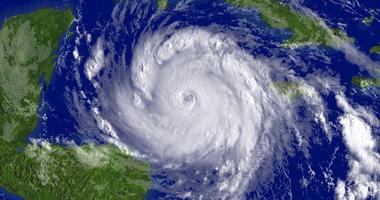
How Climate Change Is Impacting France
4 min read
Climate change is a rapidly escalating issue, with profound implications for countries all around the world, including France.
The country's diverse geography, spanning from the Alps to the Mediterranean coast, makes it vulnerable to a range of climate-related hazards. Rising temperatures, changing precipitation patterns, sea-level rise, and more frequent extreme weather events are all impacting France's environment, economy, and society.
Temperature Rise
France has experienced some of the most significant temperature increases in Europe, particularly in the French Alps region. Temperatures are on the rise across the country and this warming trend is projected to continue, with summers becoming hotter and drier, and winters milder and wetter.
“The research shows that on a high carbon pathway, temperatures in France could increase by as much as 2.1°C by 2050,” according to the G20 Climate Risk Atlas. “On a low carbon pathway this drops to 1.3°C.”
Heat waves are becoming more intense and frequent, posing risks to human health and agriculture. The 2019 heat wave brought record temperatures of nearly 46° Celsius (nearly 115° Fahrenheit), highlighting in particular the vulnerability of French cities to extreme heat.
Extreme heat can strain healthcare systems, increase mortality rates, and disrupt daily life. This was seen in the 2019 heat event, as nearly 1,500 people lost their lives to the extreme heat.
“Much of the continent [of Europe] isn’t built to cope with extreme heat,” CNN reports. “Fewer than 5% of all European households are air-conditioned, according to a 2017 report, and public transport can grind to a halt in intense heat.”
Rising temperatures are also affecting agriculture in France. Crops are becoming more susceptible to heat stress, pests, and diseases, leading to reduced yields and lower quality produce.
One of France’s biggest agricultural exports – wine – is feeling the squeeze particularly hard.
In 2020, France had its earliest grape harvest in nearly 500 years. The crops were mature more than a month earlier than previous years.
“Wine grapes are extremely sensitive to climate and this is much of what makes wine so exquisite. But it also means wine grapes are extremely sensitive to climate change,” according to Wine Mag.
Precipitation Changes
Climate change is altering France's precipitation patterns, leading to more intense rainfall events in some locations as well as longer dry periods in others.
One of the most noticeable changes is an increase in the intensity and frequency of heavy rainfall. In late June of this year, “Ferocious storms and torrential rains lashed France, Switzerland and Italy,” Le Monde reports, leaving at least seven people dead.
This flooding can cause damage to property, infrastructure, and ecosystems. Additionally, there are concerns about the potential for flash floods and even landslides due to rapid runoff from intense rainfall.
On the other hand, some regions of France are experiencing longer and more severe droughts. These dry periods can impact agriculture, water resources, tourism, and biodiversity.
“Human-caused climate change is lengthening droughts in southern France, meaning the reservoirs are increasingly drained to lower levels to maintain the power generation and water supply needed for nearby towns and cities,” according to the Associated Press.
The combination of more intense rainfall events and longer dry periods can more broadly disrupt water resources and create challenges for long-term water management across the country.
Sea-Level Rise
Sea-level rise is a major concern for France, as it has a particularly extensive coastline. The country's low-lying coastal areas, such as the Camargue and Brittany, are at risk of inundation.
Rising sea levels can also exacerbate coastal erosion and saltwater intrusion into freshwater aquifers. This poses threats to coastal communities and infrastructure.
“Rising sea levels, coastal erosion, and changing storm patterns could see 0.61 million people exposed to devastating floods by 2050, if it follows a high carbon pathway,” G20 Climate Risk Atlas says.
Extreme Weather Events
Climate change is increasing the frequency and intensity of extreme weather events, such as storms, floods, and droughts, across the country. These events can cause significant damage to property, disrupt economic activity, and endanger lives.
Heavy rainfall events can lead to flooding, damaging homes, businesses, and transportation networks. Flash floods can also occur, posing a particular threat to mountainous regions like the Alps.
Meanwhile, droughts can impact agriculture and freshwater resources. Forest fires are also becoming more frequent and intense due to dry conditions in the southern part of the country.
These extreme weather events can have severe economic consequences, as they can disrupt businesses, damage infrastructure, and lead to increased insurance costs. They can also have social and environmental impacts, affecting livelihoods, public health, and biodiversity.
Impacts on Agriculture
Agriculture is a vital sector of the French economy, but like so much else, it is highly sensitive to climate change.
The rising temperatures, changing precipitation patterns, and more frequent extreme weather events mentioned above can disrupt crop growth, reduce yields, and increase the risk of pests and diseases. This can lead to food shortages, higher food prices, and rural poverty.
Heat waves can damage crops, reduce their productivity, and increase water demand. Droughts can lead to water shortages and reduce crop yields, particularly in regions that are already water-limited like the country’s Mediterranean regions.
>> Learn more: Food Security and the Climate Crisis <<
Heavy rainfall events can cause flooding, damaging crops and disrupting agricultural activities. Additionally, climate change is altering the distribution of pests and diseases around the world, making it more difficult for farmers to manage them.
Adaptation and Mitigation
France is taking steps to adapt to the impacts of climate change and mitigate its causes.
The country has adopted a national climate change adaptation plan, which outlines strategies for reducing vulnerability to climate-related hazards. These strategies include improving early warning systems, protecting coastal areas, and promoting sustainable agriculture and water management.
France is also committed to reducing its greenhouse gas emissions and transitioning to a low-carbon economy. The country has set a target of reducing emissions by 40% by 2030 compared to 1990 levels, and achieving carbon neutrality by 2050.
By investing in adaptation and mitigation measures, France can build resilience to climate change and protect its environment, economy, and society.
What You Can Do
The climate change threat facing France is serious, but the country is taking steps to fight back.
And you can too.
By joining a Climate Reality Leadership Corps training, you can get a deeper understanding of the climate crisis and how we can address it from climate science experts, field-leading organizers, policymakers, and more.




